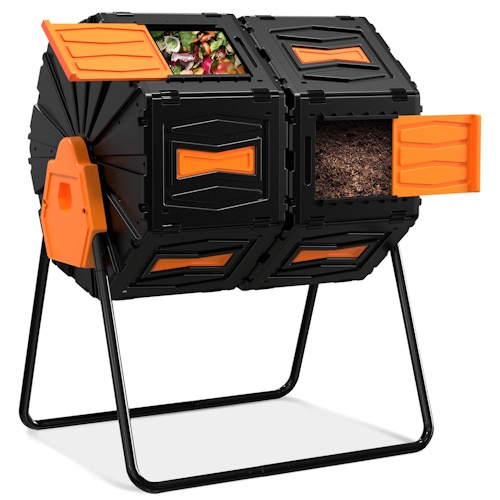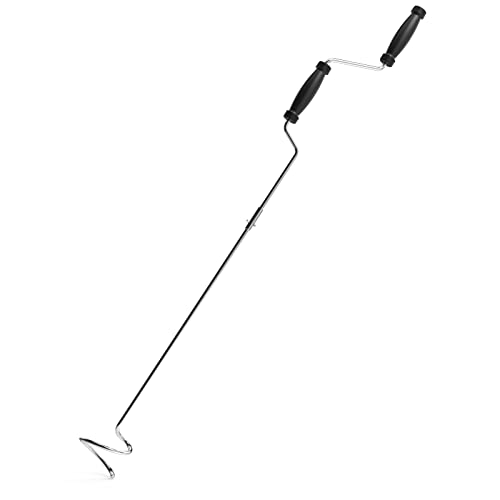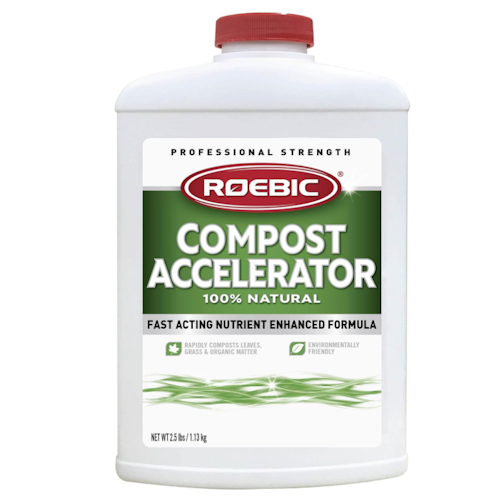7 composting myths experts don't want you to fall for – they warn these rumors will make your efforts unsuccessful
It turns out composting is odor-free, uncomplicated, and you can even do it indoors

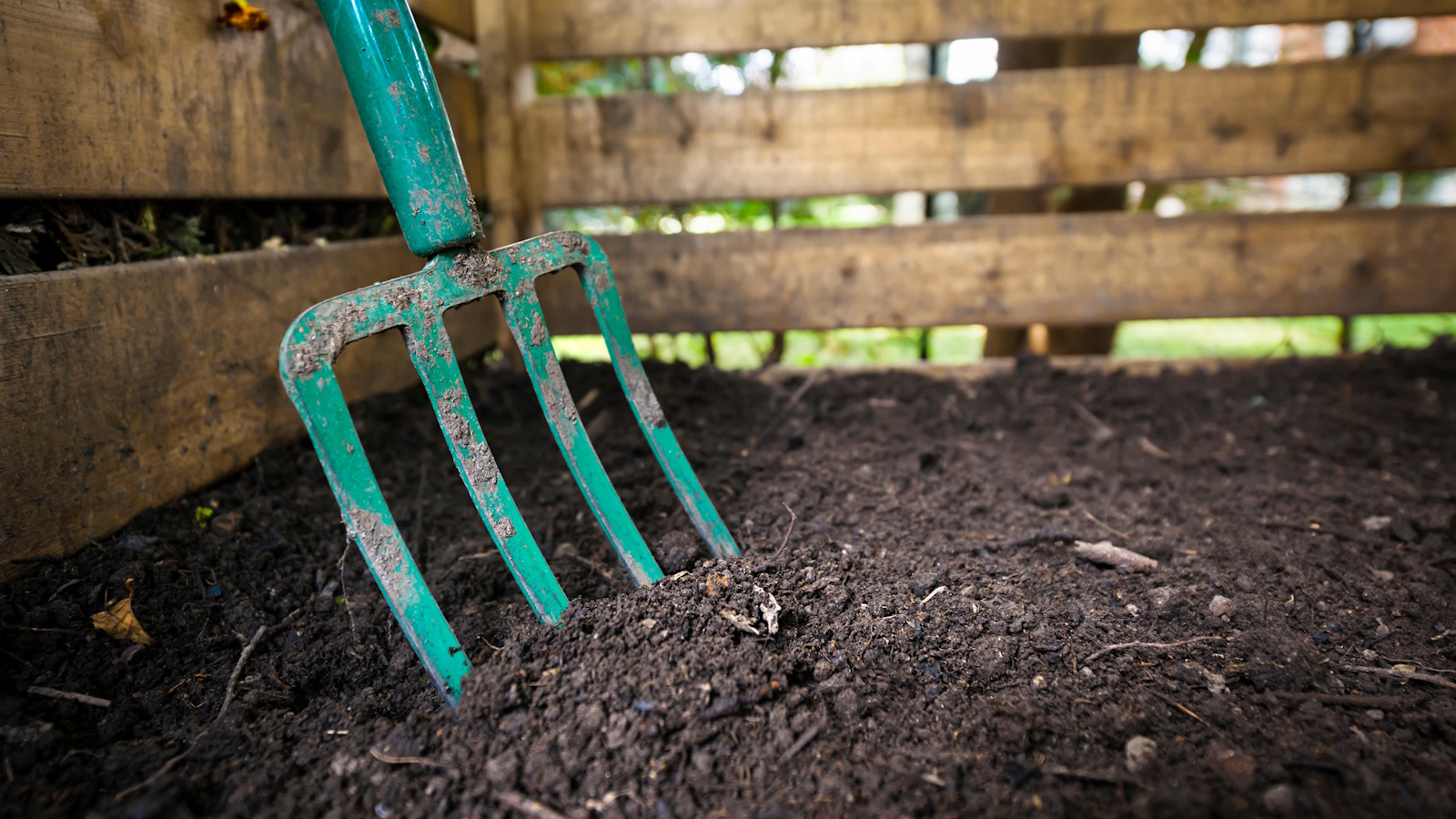
Design expertise in your inbox – from inspiring decorating ideas and beautiful celebrity homes to practical gardening advice and shopping round-ups.
You are now subscribed
Your newsletter sign-up was successful
Want to add more newsletters?

Twice a week
Homes&Gardens
The ultimate interior design resource from the world's leading experts - discover inspiring decorating ideas, color scheming know-how, garden inspiration and shopping expertise.

Once a week
In The Loop from Next In Design
Members of the Next in Design Circle will receive In the Loop, our weekly email filled with trade news, names to know and spotlight moments. Together we’re building a brighter design future.

Twice a week
Cucina
Whether you’re passionate about hosting exquisite dinners, experimenting with culinary trends, or perfecting your kitchen's design with timeless elegance and innovative functionality, this newsletter is here to inspire
Although composting is a rewarding thing to do as a gardener, many novices are a little nervous to get started because it's a bit of a science and can be a messy, smelly addition to the yard. However, making your own 'Black Gold' doesn't have to be overly complicated. In fact, there is a set of composting myths experts say should be ignored.
Of course, to make your own compost you need to follow a few rules to be successful. But, generally speaking, it's a lot more straightforward than it's often made out to be. Of course, there are some composting mistakes to avoid, but composting experts say many of the rumors are wrong: composting doesn't have to be tricky, dirty, or unpleasant.
Here, they debunk several composting myths that are holding many gardeners back. If you're struggling to master composting in your yard, it might just be that you've listened to one of these false statements about composting and need to make some adjustments.
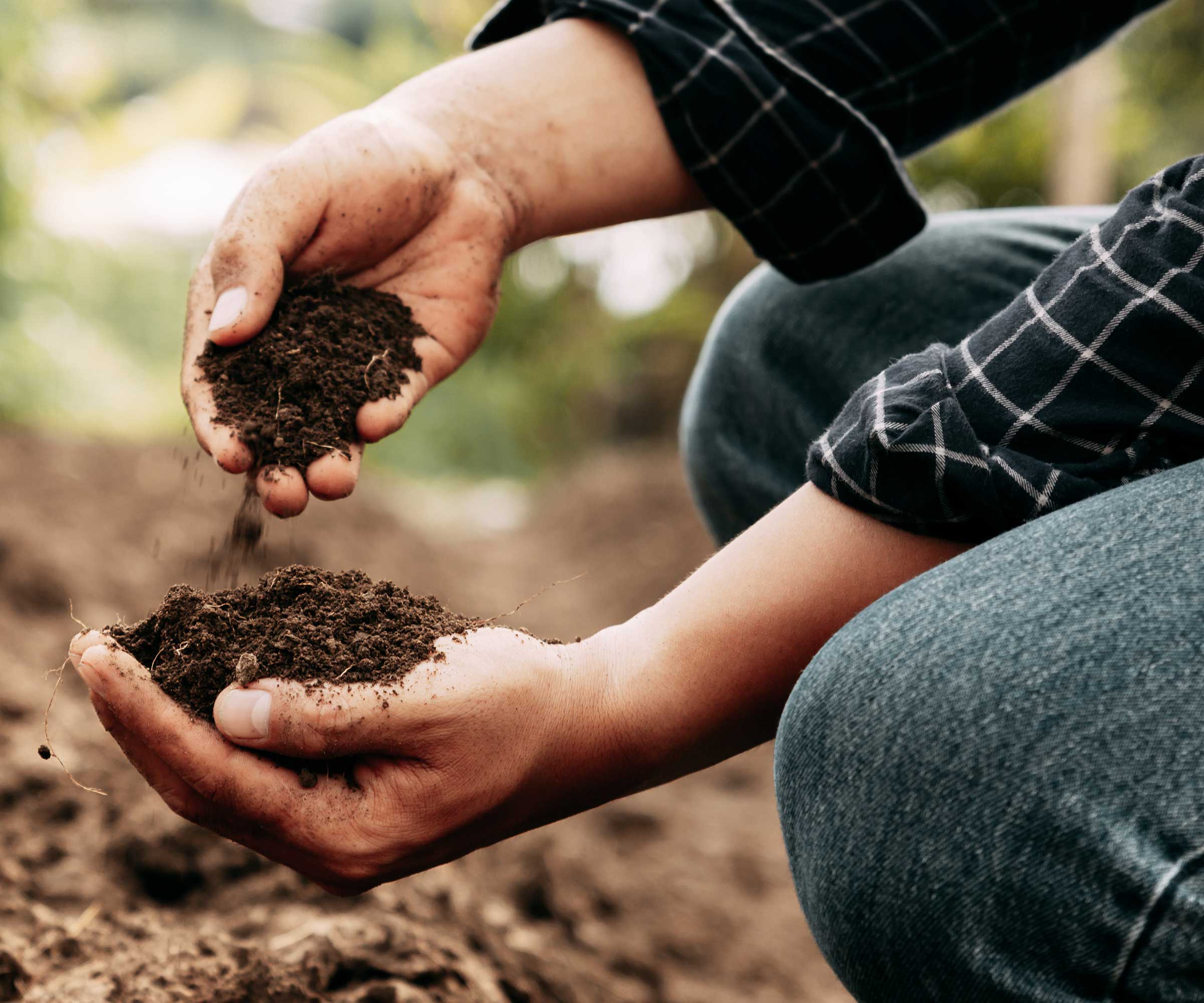
7 composting myths debunked
Whether you're lazy composting or hot composting in your yard, experts say not to be tricked into believing these composting myths. Many of them can slow down the decomposition process and leave you with compost less than usable.
1. It takes forever to turn food scraps into compost
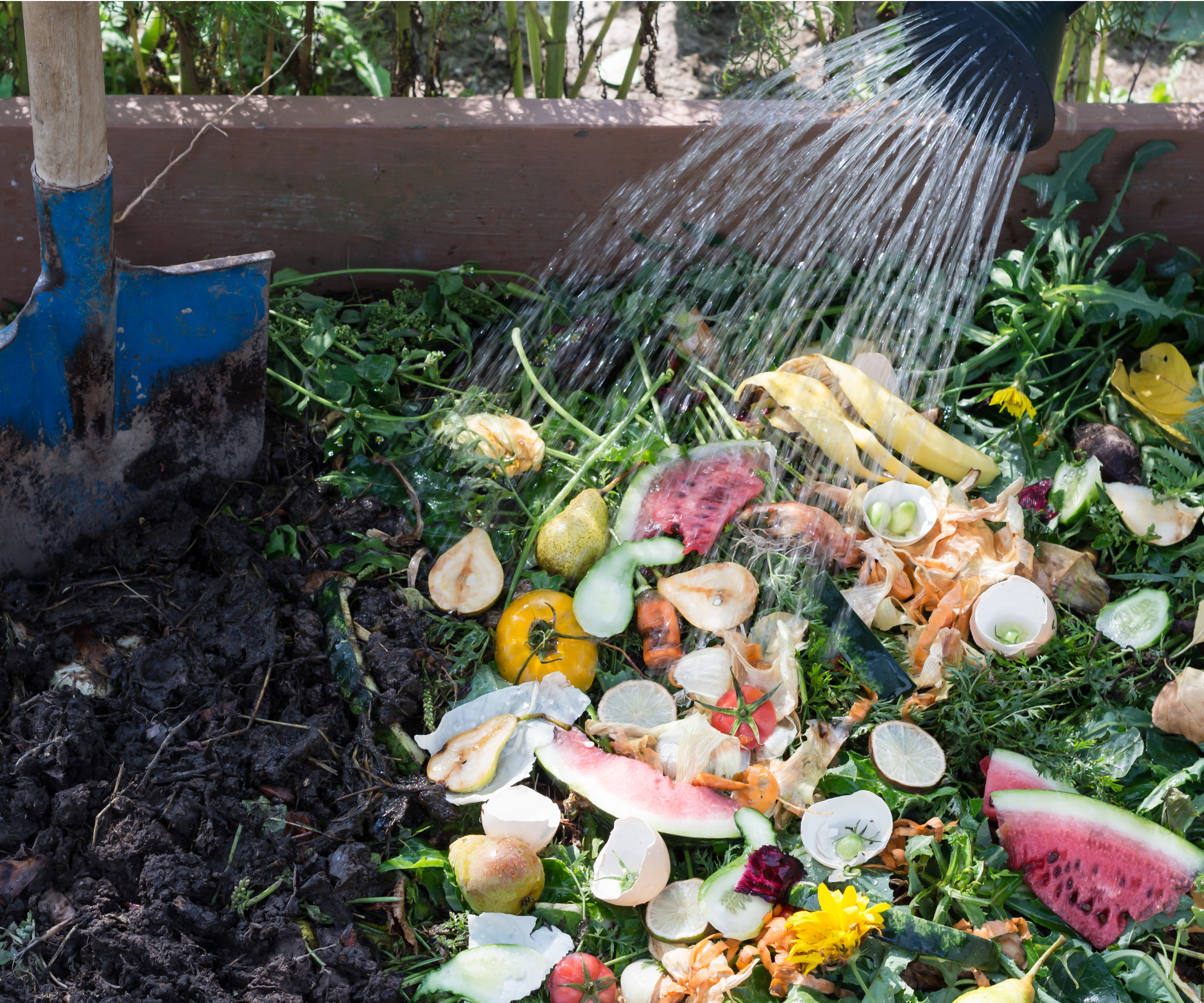
One thing that often puts gardeners off composting is the perceived time it takes to get mature, crumbly compost to use in the yard. But, the truth is, it doesn't have to take an age to get there.
'Composting speed depends on what you’re adding, how much air and water are in the pile, and how often you turn it.' explains Lauren Click, founder of Let's Go Compost.
'If you keep a good balance of greens (like food scraps) and browns (like dry leaves), keep it moist like a wrung-out sponge, and turn it every one or two weeks, you can get finished compost in about two-to-three months,' she explains.
Design expertise in your inbox – from inspiring decorating ideas and beautiful celebrity homes to practical gardening advice and shopping round-ups.
Doing these things will actually help speed up composting, too, as well as using a few tools:
'For small homes, a compost tumbler or wormery compost bin can speed things up while keeping the process clean,' Lauren notes.
Hot compost piles will break down even quicker, so consider using methods to heat up compost heaps and use this compost thermostat from Amazon to keep track of temperatures in your pile.

Lauren is the founder of Let's Go Compost, a 501(c)(3) non-profit with a mission to make composting free and accessible throughout the United States. Lauren works both in the dirt (literally) with public schools and community gardens, while also remaining focused on the big picture - working with large organizations and policymakers to ensure composting accessibility and affordability are kept front of mind as infrastructure is developed.
2. Compost attracts rodents
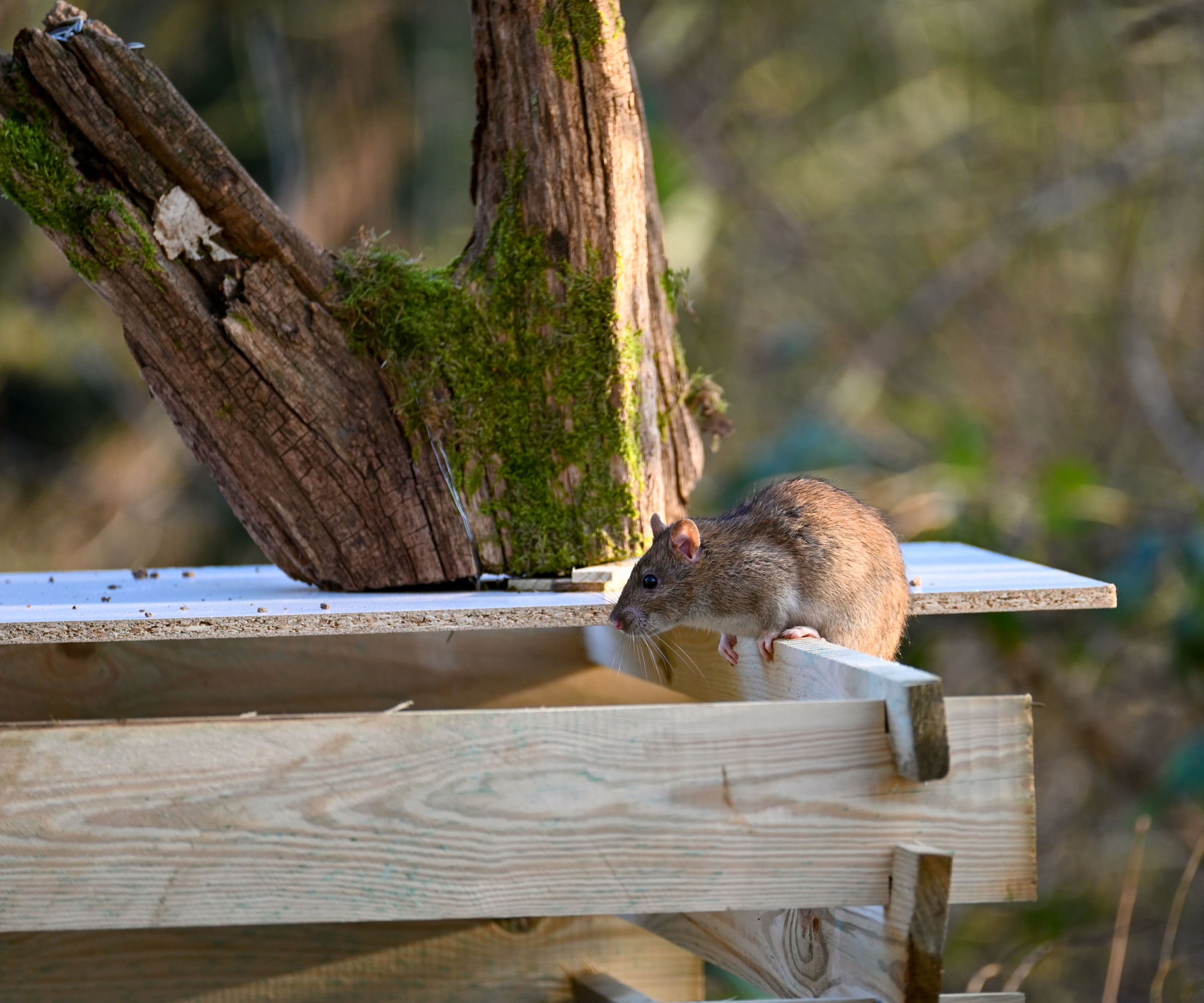
If you work hard to keep rats away from your yard, you might be unsure about making compost. However, experts say correct composting won't attract rodents.
'Composting the right way, should not attract rodents. Avoid cakes, breads, pastries, meat, bones, dairy, and some other unusual composting ingredients,' says Colleen Falicki, founder of Back to Earth Compost.
'Chop your fruits and veggies really small and be sure to add enough carbon on top,' she adds. This will bury any potential food sources for rats and speed up the decomposition rate. Plus, it will keep bad odors away, lessening the likelihood of rats coming to investigate.
Although, Charles Dowding's composting tips note it isn't the end of the world if rats do get into your compost. In a way, their movement through compost can aerate it and keep it aerobic, essential for successful composting.
You can also try growing mouse repellent plants near your compost bin to deter rats and mice. These marigold plants from Walmart are an effective one to choose.
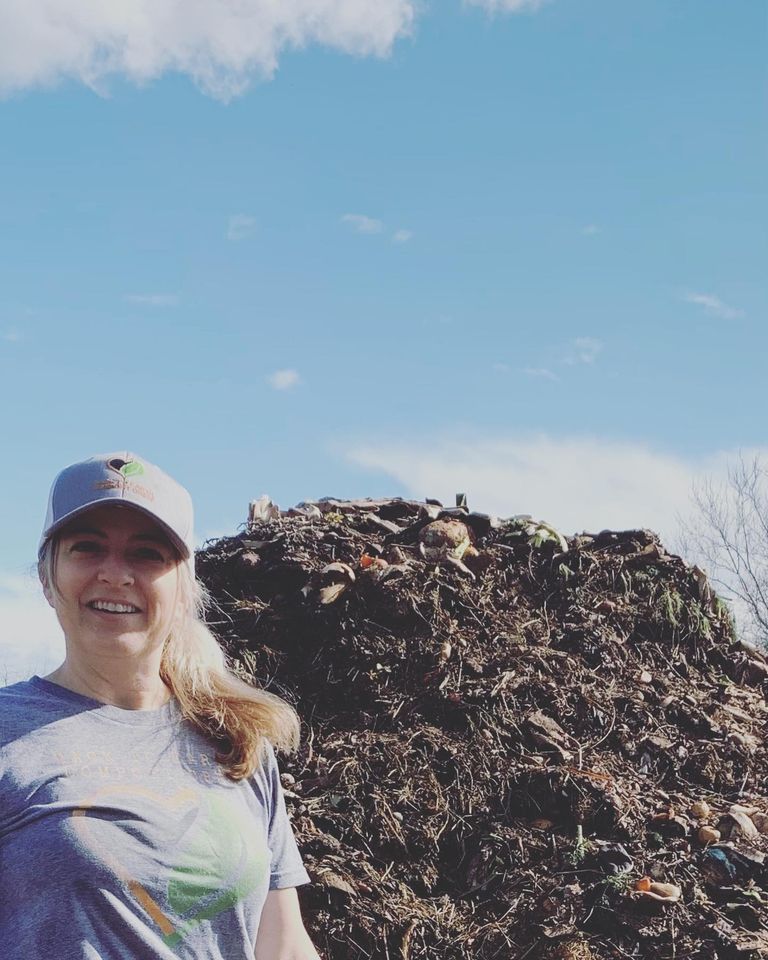
Colleen founded Back to Earth Compost Crew in 2017 to keep food scraps out of landfill and turn it into compost. She educates about composting and advises on how to successfully compost.
3. Compost piles smell bad
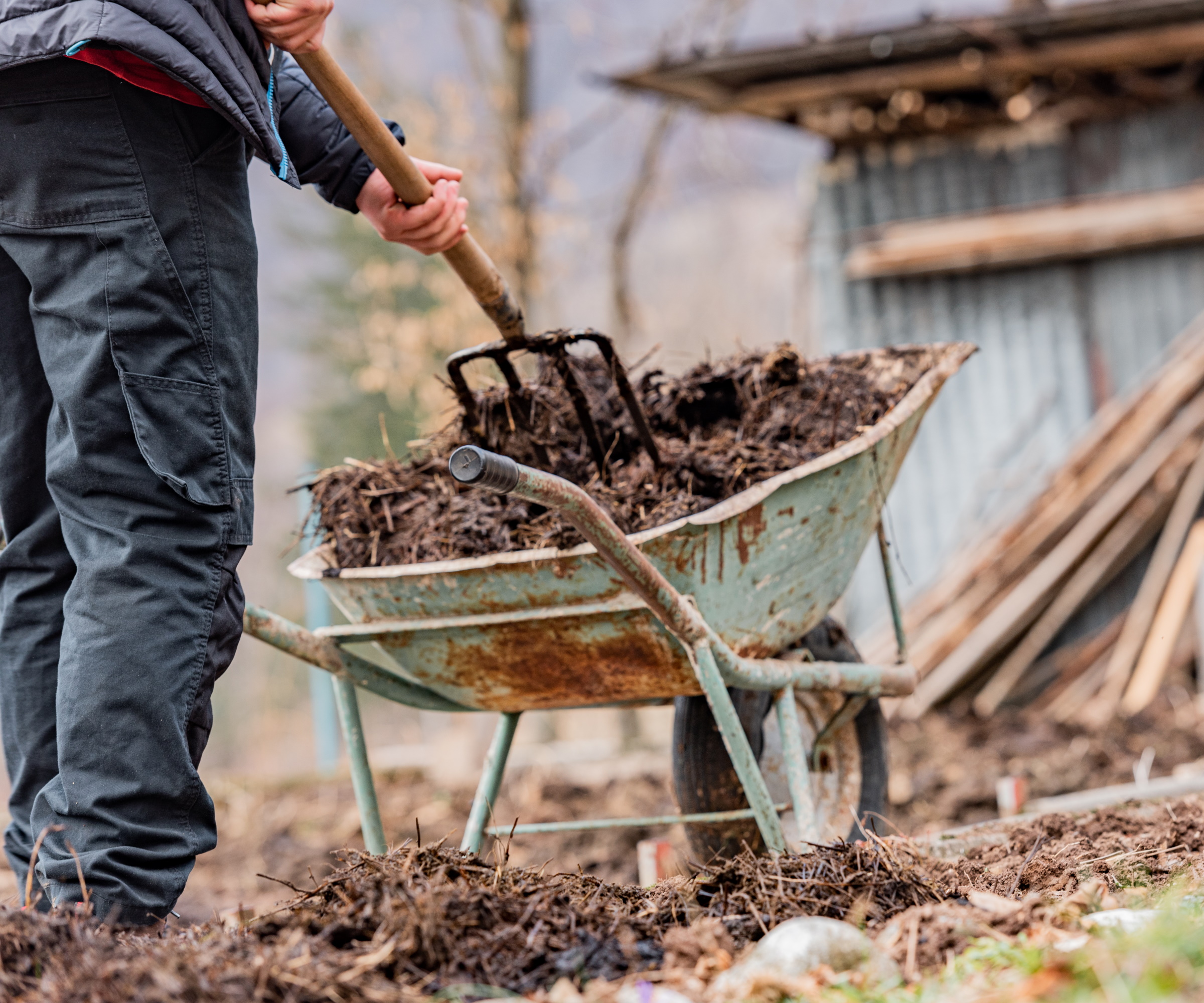
It's a common misconception that compost piles smell bad. The truth is, they will give off unpleasant odors if not managed correctly, but you can do multiple things to stop compost smelling bad.
'A smelly pile usually means it’s too wet or has too much food waste without enough browns,' explains Lauren. 'If your pile smells sour or rotten, mix in dry carbon-rich materials like shredded paper, sawdust, or leaves.'
Making sure your heap stays aerobic is also important to keep bad odors at bay.
'Aerating the pile (turning it once a week) prevents odors by keeping the microbes oxygenated. When balanced properly, compost should smell like forest soil,' Lauren adds.
You can either use a compost tumbler (from Amazon) to aerate your pile or essential gardening tools like this compost aerator tool from Amazon.
4. You need multiple compost bins to get it right
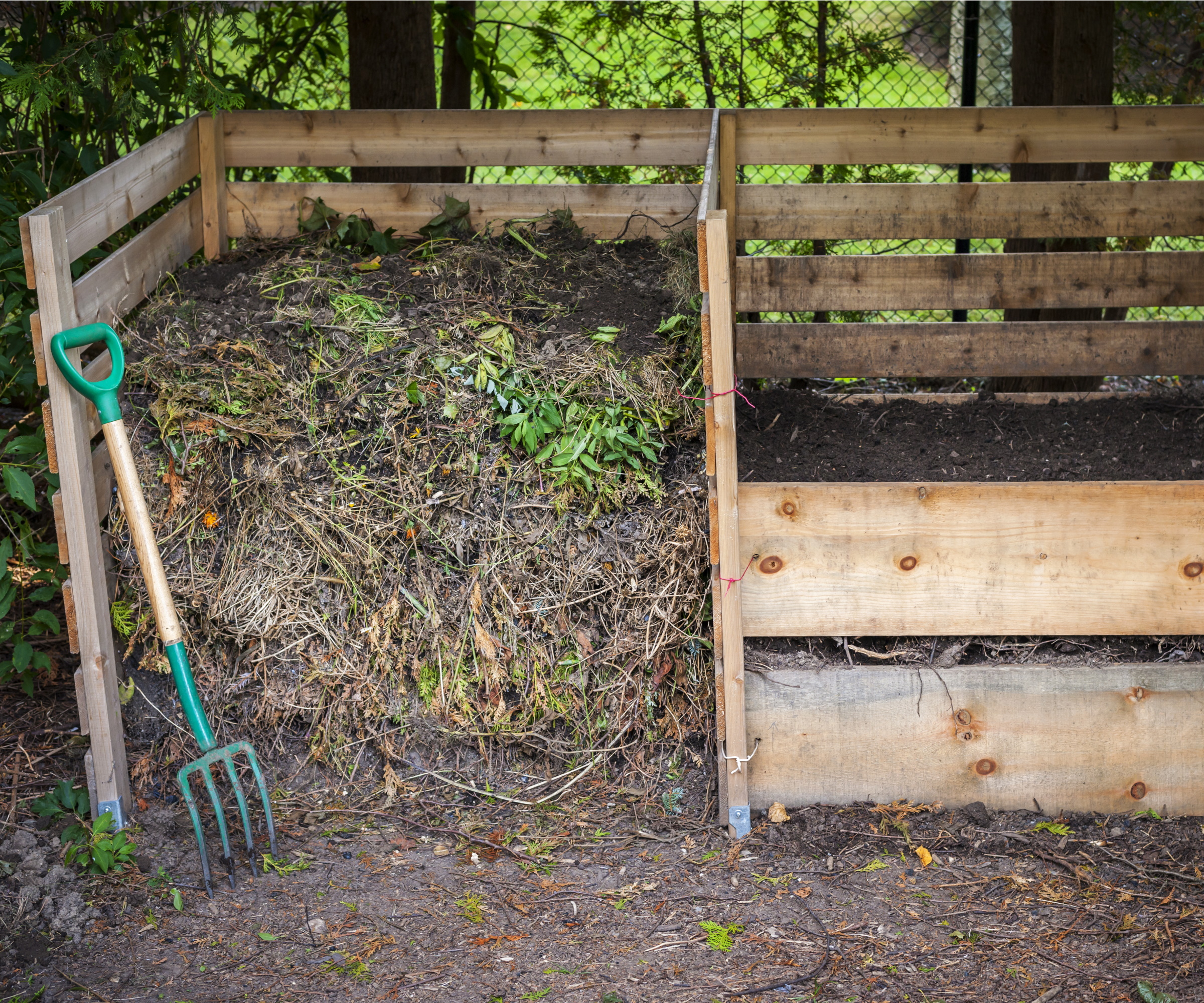
It's true that having multiple compost bins will allow you to be more efficient (by filling one bin and turning it into the next to start making another heap simultaneously), but you can be just as successful with making compost in a singular bin.
'For home composters, a single well-managed pile or bin works fine. You can keep adding scraps to one side while using finished compost from the other, or just let it fill, stop adding, and start a second bin later if needed,' Lauren notes.
You should, however, make sure your compost bin is at least 3x3x3 ft for effective decomposition. This is particularly something to keep in mind when making a DIY compost bin.
This compost tumbler from Amazon has a dual chamber, offering a space-saving solution that allows you to have two heaps on the go at once.
5. You can only compost outdoors
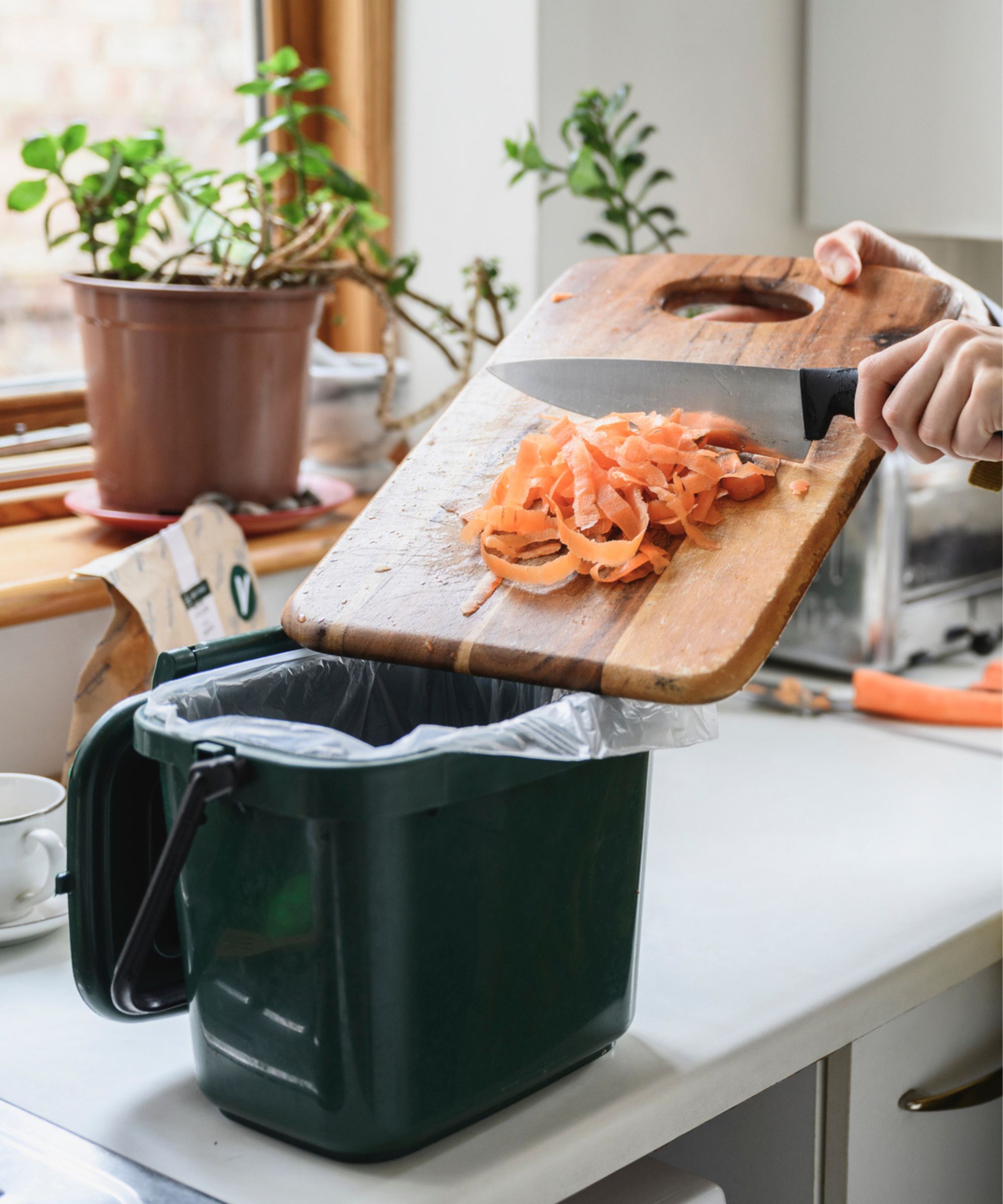
When you think of composting, you might have the image of a large pallet bin set up in a grassy landscape of a backyard, but it is just as possible to compost successfully indoors – and without mess, too.
'Vermicomposting is composting with worms and it can be easily done indoors. In fact. worms are happiest at 40-80°F, so an indoor environment is ideal,' Colleen notes.
'Bokashi composting can be also done indoors. Bokashi uses specialized bacteria to begin the process of breaking down food waste. It then is buried in the soil to finish decomposing,' she explains.
You can also start collecting food scraps for composting with a kitchen countertop compost bin (from Amazon). This electric compost bin from Walmart will shred the materials, ready for decomposition.
You can likewise use similar methods for composting in a balcony garden, where space is limited.
6. You can compost anything organic
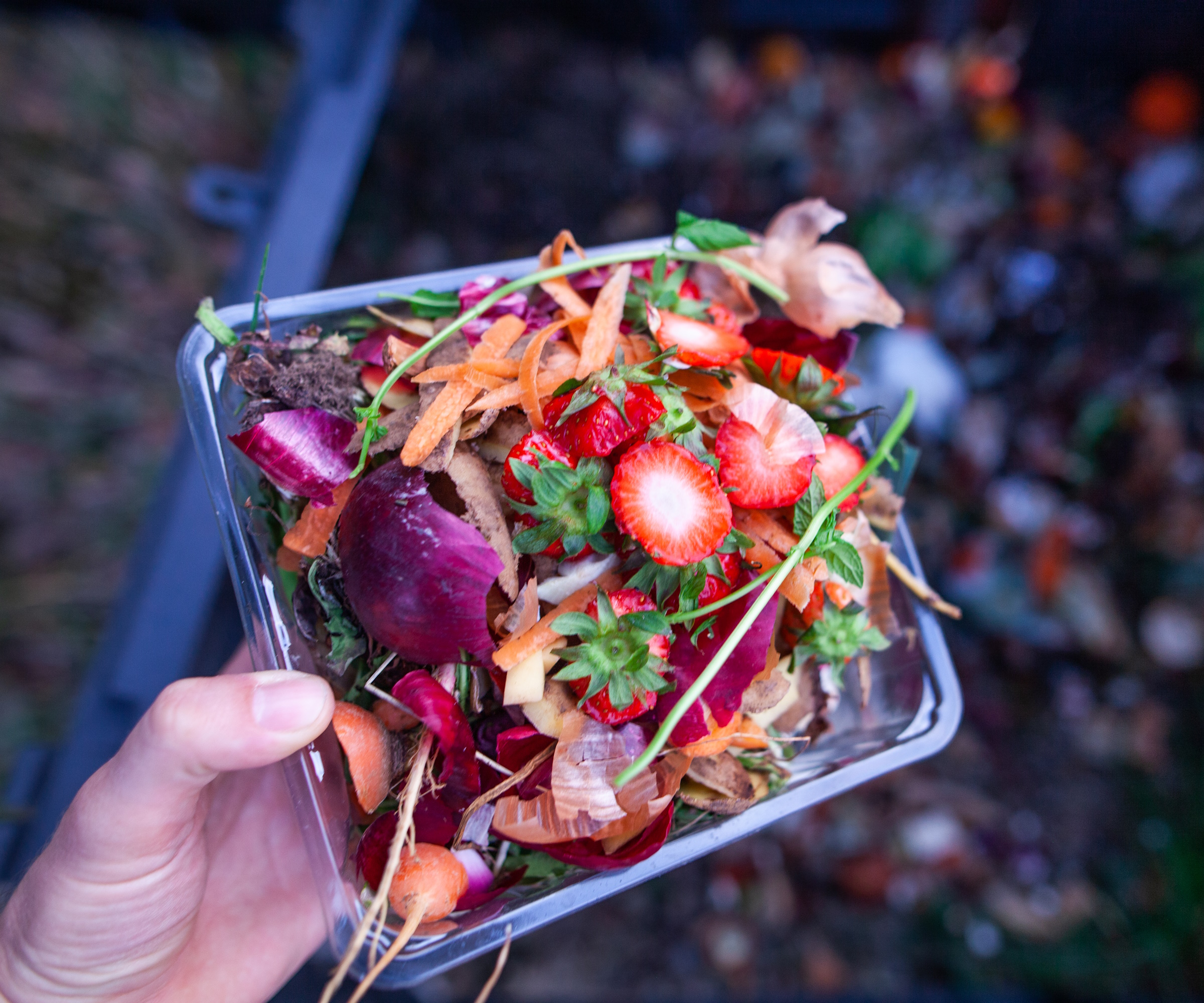
While you might think composting is as easy as chucking any organic material into the heap, experts urge you to check your materials before adding them in.
'Not everything that grows should go in your compost. Avoid weeds that have gone to seed, diseased plants, or food covered in oil or chemicals,' Lauren says. 'These can cause problems in a home pile.'
Using these items could result in contaminated compost, passing on harmful chemicals to your plants and even spreading weeds among your planting.
'It's safest to stick to veggie scraps, coffee grounds, eggshells, paper, and garden waste. If in doubt, leave it out,' Lauren advises.
Our guide to things to never add to your compost bin will help you avoid certain harmful materials.
7. Compostable packaging breaks down in home bins
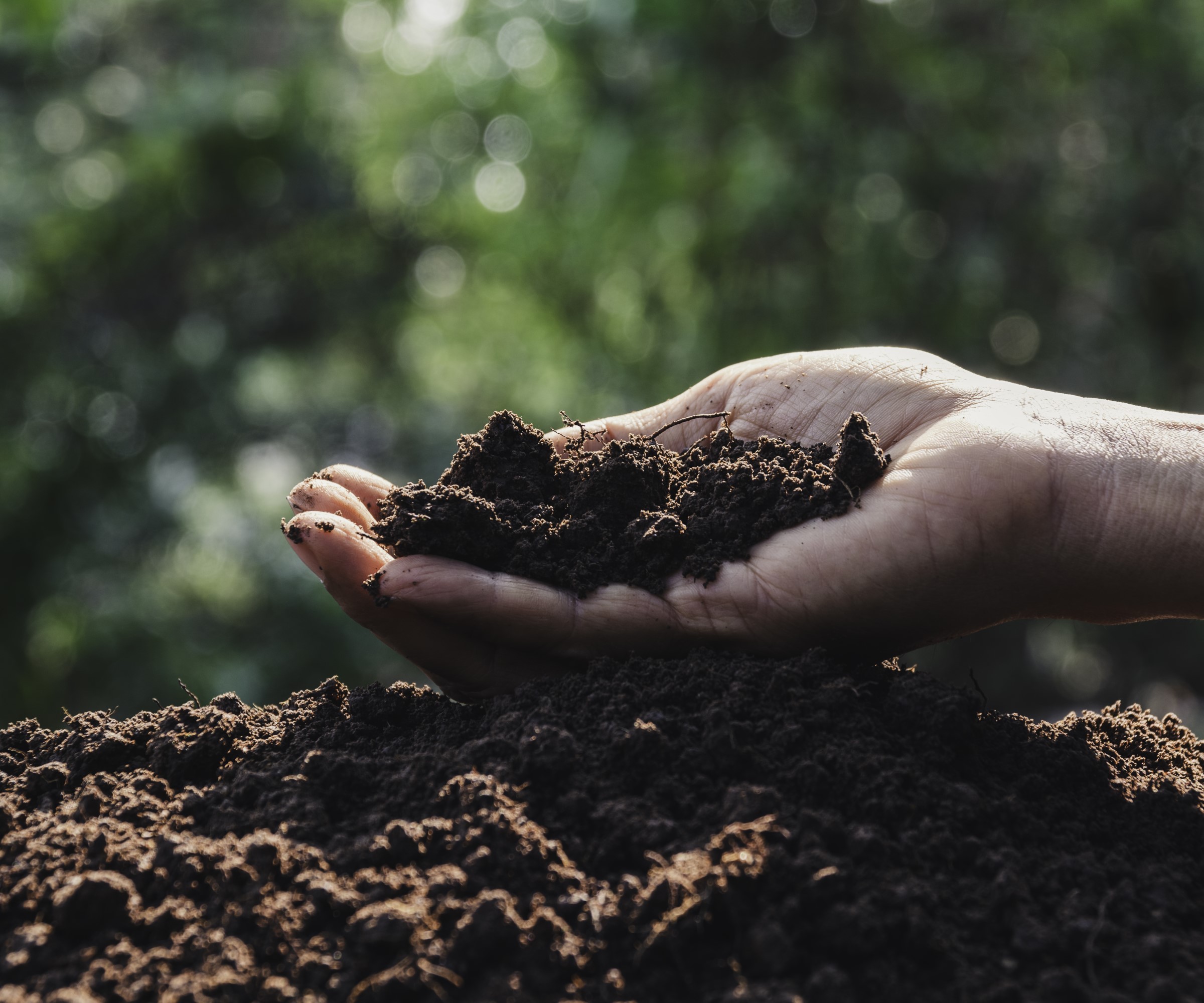
If you like eco-friendly garden ideas and sustainable living more widely, you might opt for items with packaging that is labeled 'compostable.' But, this doesn't mean it will just break down in a compost heap typical to backyards.
'Most bioplastics and 'compostable' takeout containers need high heat and long processing times that home systems can’t provide,' Lauren explains. 'Unless it’s labeled 'home compostable,' skip these items from your pile. Even some certified products won’t break down fully in a backyard pile. Focus on food scraps, paper, and yard waste instead.'
Nevertheless, it's still a good idea to opt for biodegradable packaging where possible. When disposed of correctly, it will go to industrial compost to breakdown. For example, not all tea bags are compostable, but these tea bags from Amazon are biodegradable.
FAQs
Does home composting really make a difference?
There is some debate around how much of an impact composting has on wider sustainable efforts, but Lauren Click, founder of Let's Go Compost urges all gardeners to keep composting at home:
'Food scraps sent to the landfill break down without oxygen and release methane, a potent greenhouse gas. When you compost at home, you cut climate emissions, create free fertilizer, and reduce your trash. Multiply that across a neighborhood and the impact adds up fast,' she explains.
Now these composting myths have been debunked, you can consider starting a compost heap this spring and summer. This is an ideal time to start composting, with excess garden waste to use. But you can still start a compost heap at any time of year. Why not try adding festive waste you can compost this winter?
Composting essentials to get you started

Tenielle is a Gardens Content Editor at Homes & Gardens. She holds a qualification in MA Magazine Journalism and has over six years of journalistic experience. Before coming to Homes & Gardens, Tenielle was in the editorial department at the Royal Horticultural Society and worked on The Garden magazine. As our in-house houseplant expert, Tenielle writes on a range of solutions to houseplant problems, as well as other 'how to' guides, inspiring garden projects, and the latest gardening news. When she isn't writing, Tenielle can be found propagating her ever-growing collection of indoor plants, helping others overcome common houseplant pests and diseases, volunteering at a local gardening club, and attending gardening workshops, like a composting masterclass.
